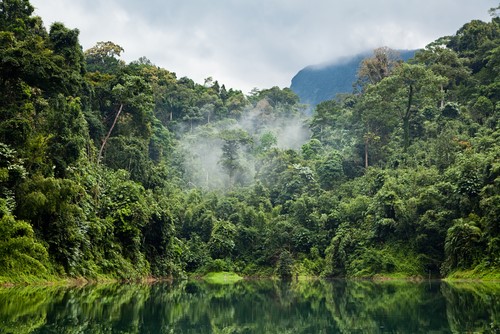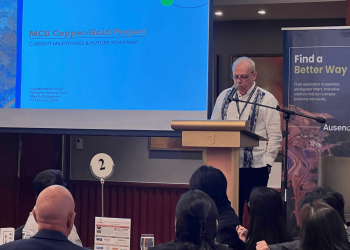Open protected areas (PAs) may be prone to exploitation after Environment Secretary Roy Cimatu’s decision to lift the ban on the issuance of Special-Use Agreement in Protected Areas (Sapa).
Greenpeace Southeast Asia-Philippines made the statement when Cimatu issued the statement on lifting the suspension of the Department of Environment and Natural Resources (DENR) Sapa.
“Greenpeace is very concerned over this development, and we fear that this move will do nothing but open the protected areas to exploitation. Lifting the moratorium on the issuance of special permits will not protect nor lift people from poverty, but rather expose our indigenous peoples to further abuse and oppression,” said Vince Cinches, Greenpeace Southeast Asia-Philippines political campaigner.
Cimatu released a memorandum to all DENR regional offices to inform them that the agency is continuing the implementation of the rules and regulations governing the issuance of the tenurial instrument for the PAs, or Department Administrative Order (DAO) 2007-17
Sapa is a tenurial instrument issued in order to productively use PAs as defined under Republic Act 7586, ot the National Integrated Protected Areas System (Nipas) Act of 1992, while retaining its PA status.
Cimatu also issued another guideline which provides for the standard computation of development fees imposed on Sapa recipients.
Based on a 2013 study by the DENR-Biodiversity Management Bureau, the recent guideline also enhances the income of potential PAs from merely P300 million to P500 billion a year.
“We would like to remind the Philippine government that our environment is not for sale. The environment does not belong to businesses that only seek to suck it dry with profit, but rather it belongs to the future generations, according to the Oposa v. Factoran Supreme Court decision on the intergenerational responsibility to a healthy and balanced ecology,” Cinches said.
He also noted that the there is no general management planning strategy (GMPS) for the use of the country’s protected areas. The GMPS, Cinches said, is required by the DENR Administrative Order 2008-26(2).
Meanwhile, the Pambansang Lakas ng Kilusang Mamamalakaya ng Pilipinas disapproved of the environment secretary’s decision. The organization said that it will open floodgates to “destructive” development projects on supposedly protected areas.
Currently, there are 240 PAs all over the country. Only 13 are backed by laws. These PAs are mostly home to some of the country’s endangered wildlife and are key to biodiversity.
Source 1
guiadenoivos.saojosedojardimeuropa.com.br
beyond.globalpranichealing.com
ejournal.akbidbungabangsaaceh.ac.id














